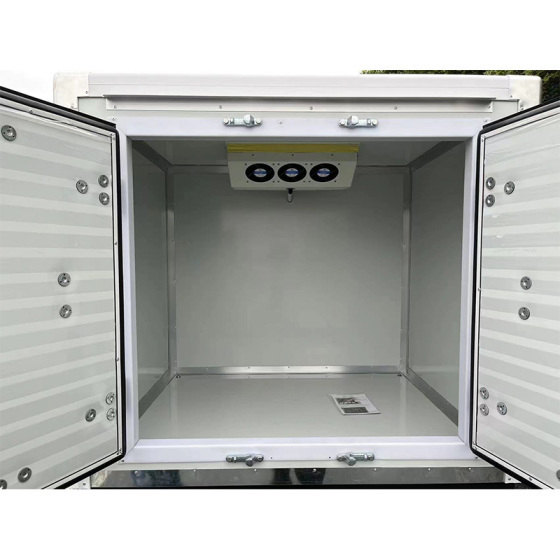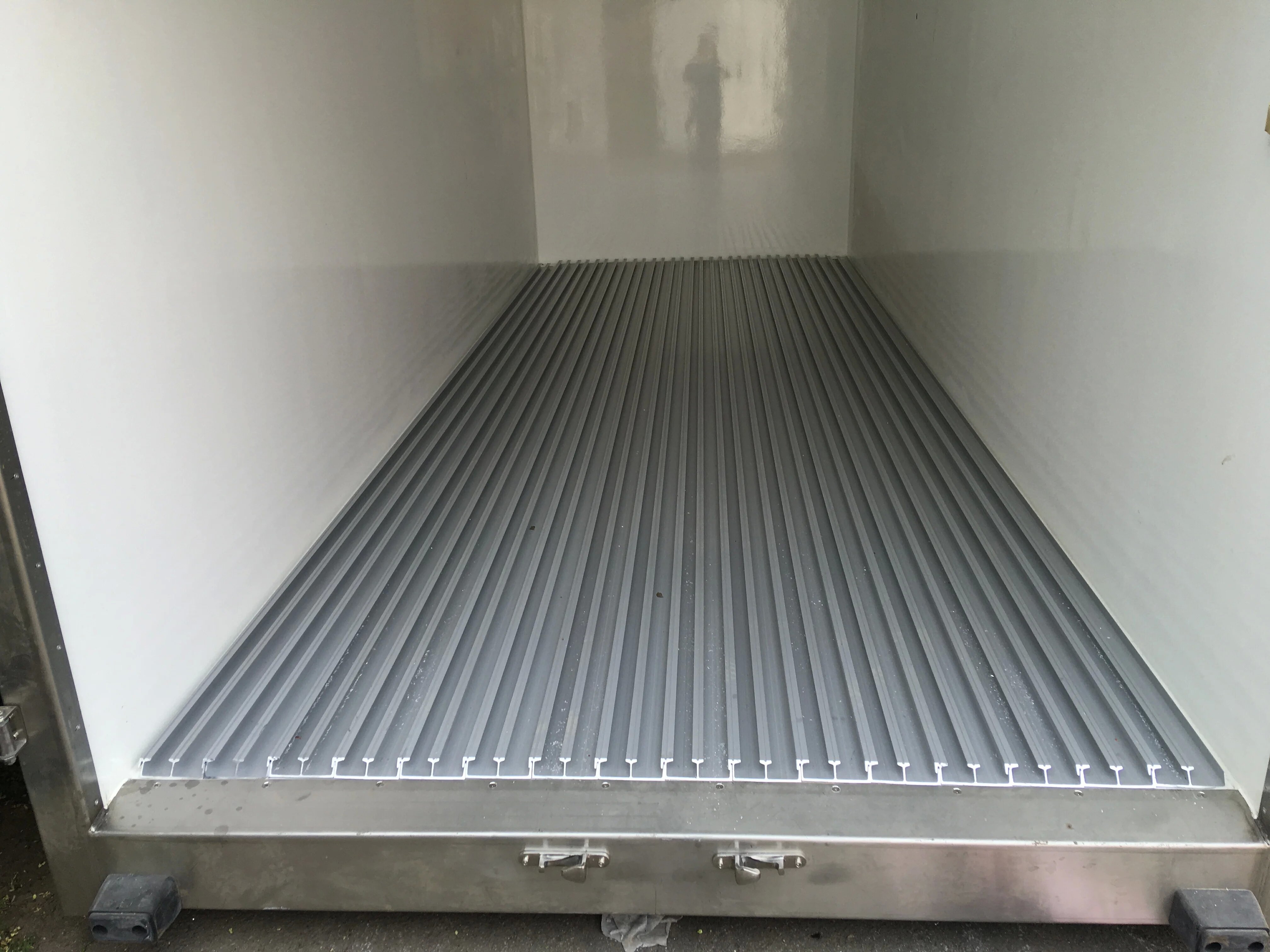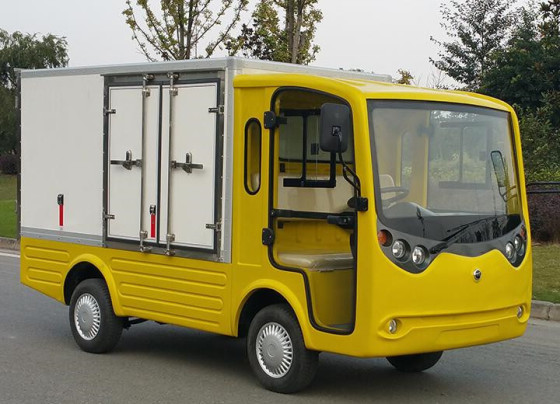Top Innovations in Refrigerated Truck Body Design: Transforming Cold Chain Logistics
Release time:
2025-06-25

Introduction to Refrigerated Truck Body Design Innovations
In the fast-paced world of logistics and transportation, the need for efficient and reliable refrigerated trucks is more critical than ever. As businesses increasingly rely on the cold chain to maintain the freshness of perishable goods, innovations in refrigerated truck body design have become paramount. This article explores the **top innovations in refrigerated truck body design**, highlighting the advancements that enhance temperature control, improve energy efficiency, and increase durability.
The Importance of Refrigerated Trucks in Supply Chain Management
Refrigerated trucks play a vital role in the supply chain, transporting temperature-sensitive products such as pharmaceuticals, dairy, fruits, and vegetables. These vehicles ensure that goods remain within specific temperature ranges, preventing spoilage and ensuring quality upon delivery. With the growth of e-commerce and global trade, the demand for advanced refrigerated transport solutions has surged.
Challenges in Traditional Refrigerated Truck Design
Despite the essential role of refrigerated trucks, traditional designs face several challenges, including:
- **Inefficient insulation materials** that lead to energy loss.
- **Inadequate temperature control systems** that struggle to maintain consistent environments.
- **Heavy materials** that increase vehicle weight, reducing fuel efficiency.
Innovations in the industry aim to address these issues, promoting sustainability and operational efficiency.
Key Innovations in Refrigerated Truck Body Design
As technology advances, the refrigerated truck industry has seen several groundbreaking innovations. Here are some of the most notable developments:
1. Advanced Insulation Techniques
The core of any refrigerated truck's efficacy lies in its insulation. New insulation materials, such as vacuum-insulated panels (VIPs) and polyurethane foam, offer superior thermal performance. These materials significantly reduce thermal bridging and energy loss, allowing trucks to maintain optimal temperatures for extended periods.
Benefits of Advanced Insulation
- **Improved Energy Efficiency:** Reducing the energy required for refrigeration systems.
- **Weight Reduction:** Lighter materials contribute to better fuel efficiency.
- **Enhanced Temperature Stability:** Maintaining consistent temperatures during transport.
2. Innovative Refrigeration Systems
Modern refrigerated trucks are equipped with cutting-edge refrigeration systems that use eco-friendly refrigerants. Systems featuring variable speed compressors adjust cooling output based on load, ensuring that energy is used efficiently while maintaining necessary temperatures.
Smart Temperature Control
Smart technology enables real-time monitoring of temperature and humidity levels within the truck. Advanced sensors and IoT connectivity allow fleet managers to track conditions remotely, ensuring compliance with safety regulations and quality standards.
3. Lightweight and Durable Materials
The shift towards lightweight materials such as composite panels made from fiberglass or aluminum has transformed refrigerated truck design. These materials offer exceptional durability while reducing overall vehicle weight.
Advantages of Lightweight Materials
- **Fuel Efficiency:** Lower weight means better fuel economy, reducing operational costs.
- **Longevity:** More durable materials can withstand harsh environmental conditions and reduce maintenance needs.
4. Aerodynamic Design Enhancements
Aerodynamics play a significant role in the efficiency of refrigerated trucks. Innovations in body shape and the inclusion of features like side skirts and aerodynamic trailers reduce drag, leading to improved fuel efficiency.
Impact of Aerodynamic Designs on Performance
- **Reduced Fuel Consumption:** Enhances overall vehicle performance on the road.
- **Environmental Benefits:** Lower emissions contribute to sustainability goals.
5. Sustainable Refrigeration Solutions
As environmental concerns rise, the refrigerated transport sector is embracing sustainability. Innovations include hybrid and electric refrigeration systems that minimize reliance on fossil fuels and reduce carbon footprints.
Examples of Sustainable Practices
- **Use of Renewable Energy Sources:** Solar panels on truck roofs to supplement power needs.
- **Regenerative Braking Technologies:** Capturing energy generated during braking to power refrigeration systems.
Case Studies: Successful Implementations of Innovations
Several companies have successfully integrated these innovations into their fleets, demonstrating the benefits of modern refrigerated truck designs.
Case Study 1: Fresh Logistics
Fresh Logistics adopted lightweight composite materials and advanced insulation techniques in their refrigerated fleet. The result was a 20% increase in fuel efficiency and a significant reduction in spoilage rates during transport.
Case Study 2: Pharma Transport Inc.
Pharma Transport Inc. implemented smart temperature control systems that allow for real-time monitoring. This innovation led to improved compliance with regulatory standards and a decrease in product loss due to temperature excursions.
Future Trends in Refrigerated Truck Design
As technology continues to evolve, the future of refrigerated truck design promises even more exciting advancements. Key trends to watch include:
1. Integration of Autonomous Technology
The rise of autonomous vehicles may revolutionize refrigerated transport. Self-driving technology could lead to improved efficiency, safety, and reduced operational costs.
2. Enhanced Data Analytics
Big data analytics will play a role in optimizing routes, predicting maintenance needs, and improving overall fleet management.
3. Increased Customization Options
As companies seek to meet specific logistical needs, customizable refrigerated truck designs will become more prevalent.
Conclusion: Embracing Innovations for Future Success
The innovations in refrigerated truck body design are reshaping the logistics industry, improving efficiency, sustainability, and product quality. As businesses adapt to evolving market demands, embracing these advancements is crucial for staying competitive. By investing in modern refrigeration technologies, fleet managers can ensure their operations are optimized for success, meeting the needs of consumers while minimizing environmental impact.
FAQs
1. What are the main benefits of advanced insulation in refrigerated trucks?
Advanced insulation improves energy efficiency, reduces weight, and enhances temperature stability during transport.
2. How do smart temperature control systems work?
Smart temperature control systems utilize sensors and IoT connectivity to monitor and adjust temperature and humidity levels in real-time.
3. What materials are commonly used in modern refrigerated truck designs?
Lightweight composite materials, fiberglass, and aluminum are popular for their durability and efficiency.
4. How does aerodynamics impact refrigerated truck performance?
Aerodynamic designs reduce drag, leading to improved fuel consumption and overall vehicle efficiency.
5. What future trends can we expect in refrigerated truck design?
Expect to see increased integration of autonomous technology, enhanced data analytics, and more customization options in the future.
Top Innovations in Refrigerated Truck Body Design: Transforming Cold Chain Logistics
Introduction to Refrigerated Truck Body Design Innovations In the fast-paced world of logistics and transportation, the need for efficient and reliable refrigerated trucks is more critical than ever. As businesses increasingly rely on the cold chain to maintain the freshness of perishable goods, innovations in refrigerated truck body design have become paramount. This article explores the **top in
2025-06-25

Essential Features to Consider When Choosing a Light Truck Body
Essential Features to Consider When Choosing a Light Truck Body Light trucks are versatile vehicles widely used across various industries, from construction to delivery services. Selecting the right light truck body can significantly impact your operations, efficiency, and overall productivity. This article will delve into **the top features to look for in a light truck body**, ensuring it meets y
2025-06-21

Top 5 Features to Look for in a Quality Van Box Body
Top 5 Features to Look for in a Quality Van Box Body When selecting a van box body, it’s important to focus on features that enhance the vehicle's durability, functionality, and overall performance. Whether you are a business owner looking for the ideal vehicle for deliveries or an individual in need of extra storage space, knowing what to look for can save you time and money. In this article, we
2025-06-17

 Esperanto
Esperanto
 Shqiptare
Shqiptare
 Euskara
Euskara
 Zulu
Zulu
 Latinus
Latinus
 Cymraeg
Cymraeg
 தமிழ்
தமிழ்
 Slovak
Slovak
 Slovak
Slovak
 Afrikaans
Afrikaans
Xiamen Sungrow Sheet Metal Technology Co., Ltd.
WhatsApp: 86-15880206937
Email: sales2@sungrowsn.com
Add: No.299, Hongtangli Road, Hongtang Town, Tong'an District, Xiamen, Fujian, P.R.China.




